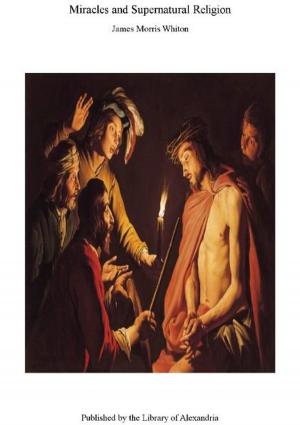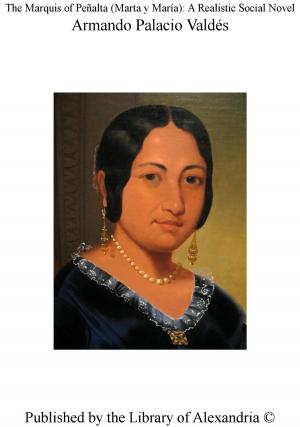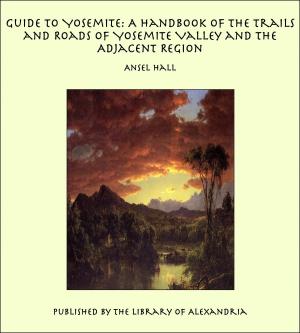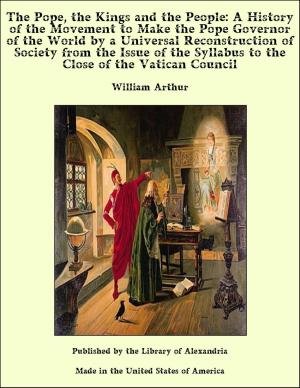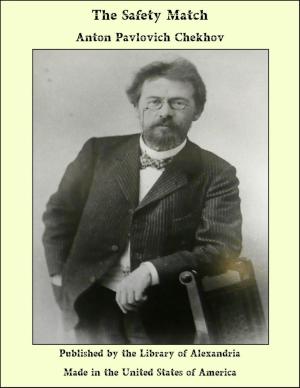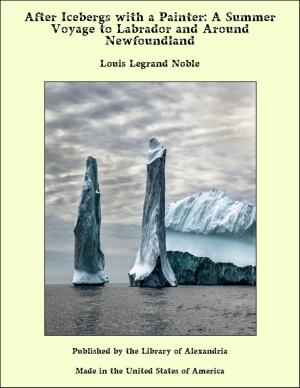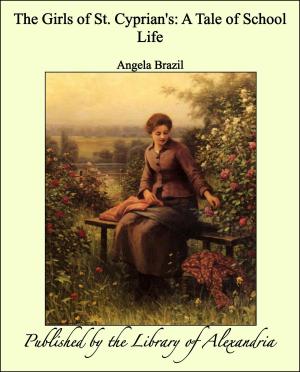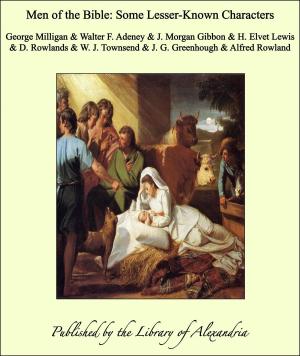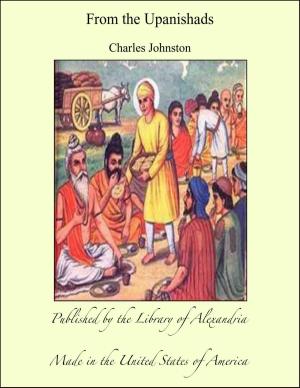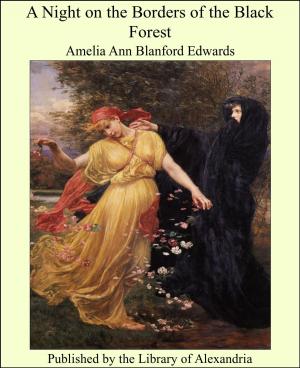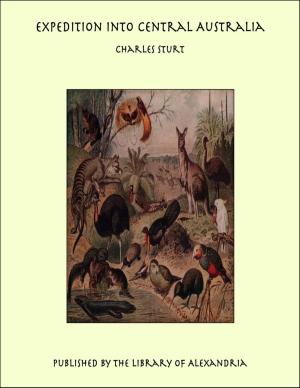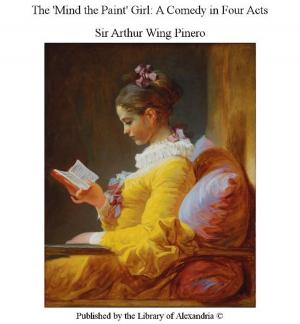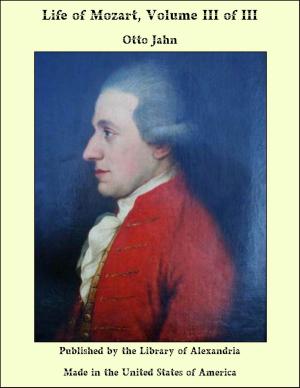The Englishman in China During the Victorian Era As Illustrated in the Career of Sir Rutherford Alcock, Many Years Consul and Minister in China and Japan (Complete)
Nonfiction, Religion & Spirituality, New Age, History, Fiction & Literature| Author: | Alexander Michie | ISBN: | 9781465623492 |
| Publisher: | Library of Alexandria | Publication: | March 8, 2015 |
| Imprint: | Language: | English |
| Author: | Alexander Michie |
| ISBN: | 9781465623492 |
| Publisher: | Library of Alexandria |
| Publication: | March 8, 2015 |
| Imprint: | |
| Language: | English |
Born in the same year as Mr Gladstone, May 1809, John Rutherford Alcock predeceased that statesman by only six months. His birthplace was Ealing, and he died in Westminster, after a residence there in retirement of twenty-seven years. Being a delicate infant, he was baptised in Ealing church when one day old. His childhood was deprived of its sunshine by the loss of his mother, and it does not appear that his father, a medical man of some note, and an artist to boot, was equal to filling the void in the young life. Consequently boyhood had for him none of the halo of a golden age, but was, on the contrary, a grey and cheerless memory, furnishing tests of hardihood rather than those glowing aspirations which generally kindle young ambitions. His early life was passed with relatives in the north of England, and he went to school at Hexham, where he had for companions Sir John Swinburne and Mr Dawson Lambton. Of his school-days there is little to remark. Indeed his early education seems to have been most irregular, having been subject to long and frequent interruptions on account of ill-health, which necessitated sea-voyages and other changes of air. Nevertheless the diligence which was part of his nature compensated for these drawbacks of his youth, and set its seal on his whole after-career. On returning to his father's house at the age of fifteen, the boy began his medical education, being, according to the fashion of the day, apprenticed to his father, and at the same time entered as a student at the Westminster Hospital and the Royal Westminster Ophthalmic Hospital under that distinguished surgeon, G. J. Guthrie. His passion for art had already asserted itself, and he was enabled to indulge it by constant visits to Chantrey's studio, where, "amid the musical sounds of the chisel on the marble, with snatches of airs from the workmen, where all breathed a calm and happy repose, he passed delightful hours." His half-holidays were spent at Chantrey's in modelling. In the following year he visited Paris, and seems ever after to have looked back on the gay city as a kind of paradise, for there the world first really opened to the young man of sixteen. Then began that life of work and enjoyment, so blended as to be inseparable, which continued without intermission for more than seventy years. In the stimulating atmosphere of Paris, and its free and independent life, the boy's faculties rapidly developed. He seemed, indeed, to expand suddenly into full manhood. Destined for the medical profession, he worked hard at anatomy, chemistry, and natural history, while taking also a keen interest in artistic and literary subjects; mastered French and Italian; and, in short, turned his twelve or eighteen months' sojourn to highly practical account. From a small pocket-book containing notes of the journey to France, and part of his work in Paris, we give some extracts illustrative of the boy's character and powers of observation. It was on the 17th of August 1825 that the party embarked at the Custom-House Stairs for Calais, the voyage occupying fourteen hours. On landing the lad "amused himself by observing the effects in the sky and the sea, and by picking up shells, bones of birds and animals, which having remained in the sea until perfectly clean, looked beautiful and white as ivory." Simple things interested him, and after dinner at the Hôtel Meurice in Paris he "listened with much pleasure to a man playing airs on what he called an American flute"—which he goes on to describe: "The tones were mellow in the extreme, and the airs he played I think were much superior in sweetness to any I have ever heard from an instrument so clear," and so on. Obviously a subjective impression; it is his own emancipation that beautifies the simplest things and inspires the simplest sounds.
Born in the same year as Mr Gladstone, May 1809, John Rutherford Alcock predeceased that statesman by only six months. His birthplace was Ealing, and he died in Westminster, after a residence there in retirement of twenty-seven years. Being a delicate infant, he was baptised in Ealing church when one day old. His childhood was deprived of its sunshine by the loss of his mother, and it does not appear that his father, a medical man of some note, and an artist to boot, was equal to filling the void in the young life. Consequently boyhood had for him none of the halo of a golden age, but was, on the contrary, a grey and cheerless memory, furnishing tests of hardihood rather than those glowing aspirations which generally kindle young ambitions. His early life was passed with relatives in the north of England, and he went to school at Hexham, where he had for companions Sir John Swinburne and Mr Dawson Lambton. Of his school-days there is little to remark. Indeed his early education seems to have been most irregular, having been subject to long and frequent interruptions on account of ill-health, which necessitated sea-voyages and other changes of air. Nevertheless the diligence which was part of his nature compensated for these drawbacks of his youth, and set its seal on his whole after-career. On returning to his father's house at the age of fifteen, the boy began his medical education, being, according to the fashion of the day, apprenticed to his father, and at the same time entered as a student at the Westminster Hospital and the Royal Westminster Ophthalmic Hospital under that distinguished surgeon, G. J. Guthrie. His passion for art had already asserted itself, and he was enabled to indulge it by constant visits to Chantrey's studio, where, "amid the musical sounds of the chisel on the marble, with snatches of airs from the workmen, where all breathed a calm and happy repose, he passed delightful hours." His half-holidays were spent at Chantrey's in modelling. In the following year he visited Paris, and seems ever after to have looked back on the gay city as a kind of paradise, for there the world first really opened to the young man of sixteen. Then began that life of work and enjoyment, so blended as to be inseparable, which continued without intermission for more than seventy years. In the stimulating atmosphere of Paris, and its free and independent life, the boy's faculties rapidly developed. He seemed, indeed, to expand suddenly into full manhood. Destined for the medical profession, he worked hard at anatomy, chemistry, and natural history, while taking also a keen interest in artistic and literary subjects; mastered French and Italian; and, in short, turned his twelve or eighteen months' sojourn to highly practical account. From a small pocket-book containing notes of the journey to France, and part of his work in Paris, we give some extracts illustrative of the boy's character and powers of observation. It was on the 17th of August 1825 that the party embarked at the Custom-House Stairs for Calais, the voyage occupying fourteen hours. On landing the lad "amused himself by observing the effects in the sky and the sea, and by picking up shells, bones of birds and animals, which having remained in the sea until perfectly clean, looked beautiful and white as ivory." Simple things interested him, and after dinner at the Hôtel Meurice in Paris he "listened with much pleasure to a man playing airs on what he called an American flute"—which he goes on to describe: "The tones were mellow in the extreme, and the airs he played I think were much superior in sweetness to any I have ever heard from an instrument so clear," and so on. Obviously a subjective impression; it is his own emancipation that beautifies the simplest things and inspires the simplest sounds.

